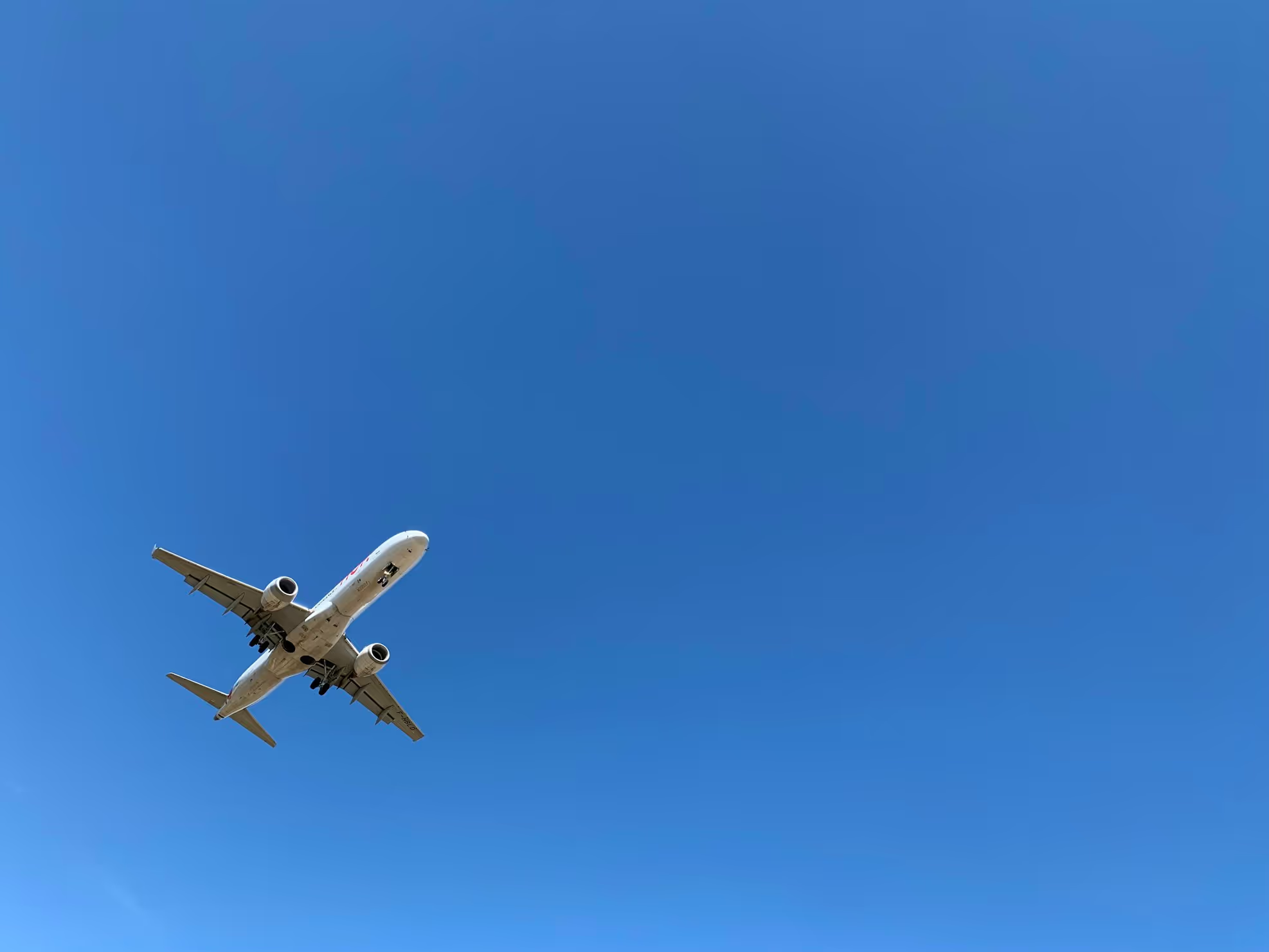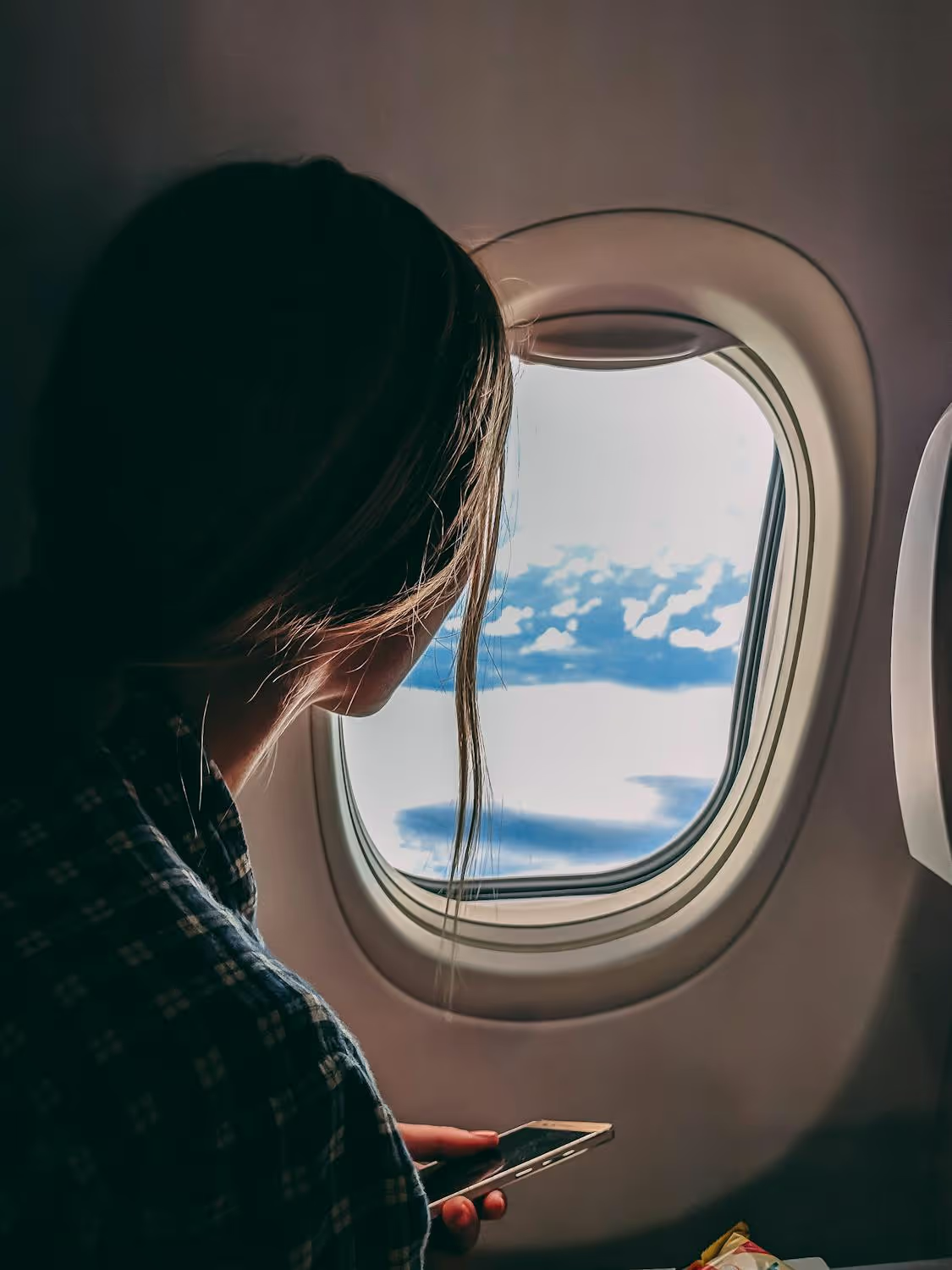Coping with flight anxiety is a common struggle for many people.Flight anxiety often interferes with the excitement and anticipation of going on vacation,...

Coping with flight anxiety is a common struggle for many people.
Flight anxiety often interferes with the excitement and anticipation of going on vacation, visiting family, or moving to a new city.
Many people also struggle with flight anxiety related to work travel or other obligations.
Flight anxiety is commonly experienced when a person is actually flying on a plane.
However, many times the most severe feelings of flight anxiety occur before getting on the plane.
Coping with flight anxiety is most often about managing fears and anxiety associated with anticipating a flight.
Flight anxiety doesn't have to ruin your plans.
Let's look at some effective means for coping with flight anxiety.
One way for coping with flight anxiety is to identify your flight triggers.
A flight trigger is anything associated with flying that triggers your flight anxiety.
Examples include plane tickets, airline check-in counters, baggage check lines and machines, airport security personnel, terminal waiting areas, etc.
Remember, flight anxiety is more often about fear and anxiety experienced before an actual flight when you're anticipating flying.
Like most forms of anxiety, flight anxiety can strike anytime or anywhere for no apparent reason.
Flight triggers are as unique as you are.
One person's flight trigger may be sitting in the terminal waiting area, while another person may be triggered by baggage check lines and machines.
Checking into the airport may not bother you, but for others suffering from flight anxiety, it may cause extreme discomfort.
Coping with flight anxiety means identifying your flight triggers, so you can be better prepared mentally for the inevitable experience.
Coping with Flight Anxiety: Fear vs. Danger
An effective means for coping with flight anxiety is distinguishing between your fears and actual danger.
Fears caused by flight anxiety, as with most forms of anxiety, can seem irrational.
Flight anxiety can convince you that you're in danger even when you're not.
Many who suffer from flight anxiety experience graphic, tragic fantasies about flying.
Others focus on past tragedies such as plane crashes in the news.
There are ways of coping with flight anxiety that may allow you to outsmart flight anxiety.
Common sense can be an effective tool when coping with flight anxiety.
For example, common sense may tell you that more people die in car wrecks than in plane crashes.
And how often do you drive a car versus flying?
When outsmarting flight anxiety, it's crucial to distinguish between your fear and actual danger.
Educating yourself about the real dangers associated with flying may help alleviate your flight anxiety.
This could mean reading up on safety statistics associated with flying, even researching the safety history of a particular airline.
It could also mean talking to friends or family about their frequent flight experiences and finding comfort in their successful experiences.
For many suffering from flight anxiety, airports can feel claustrophobic.
Anxiety already has a knack for making you feel trapped.
It's no wonder then that airports often aggravate and exacerbate feelings of flight anxiety.
Practicing breathing techniques is an excellent way of coping with flight anxiety.
Breathing is life, and life-giving.
Breathing nourishes the physical body and calms the mind.
And breathing techniques are something you practice wherever you are, anytime, and anyplace.
Wherever and whenever you may experience flight triggers, practice breathing techniques.
Practicing breathing techniques during flight anxiety means altering the way you normally breathe.
It means breathing in a measured, controlled way.
For example, you may breathe in deeply and slowly exhale, even making a calming humming sound while you do.
Another example would be counting your breaths, and increasing them or decreasing them to increase a feeling of calm.
Try placing your hand an inch or two in front of your mouth, in order to feel your breathing.
Feeling your breath can have a grounding, calming effect on the mind and body.

When you fly, you're most likely going to experience some turbulence.
Turbulence can be anything from the plane shaking while in flight, or the airplane's wheels screeching during takeoff or landing.
Nobody, not even the pilots can predict or control the weather and turbulence.
Even for someone not suffering from flight anxiety, turbulence can be a little scary.
Let's face it- you can't alter the laws of physics and make turbulence never happen.
But you can learn healthy ways for controlling your fear of turbulence.
One healthy way of coping with flight anxiety is learning how mentally smooth-out turbulence.
When you smooth-out turbulence, you prepare your mind and body for the uncomfortable experience.
Ways to smooth-out turbulence are: making yourself comfortable before and during the flight.
For example, you may bring a familiar blanket, stuffed animal, or pillow.
Never underestimate the power of smell- so if it smells like your warm safe bed then you may feel safe in bed.
In fact, insulating your five senses before and during a flight is an effective way to smooth-out turbulence.
Try eating your favorite candy, listening to relaxing music, touching a favorite sweater or pair of socks, etc.
Any sensory experience (sight, smell, taste, touch, hear) that makes you feel calm can be an effective way of coping with flight anxiety.
Unfortunately, flight anxiety can be so severe that many people resort to using either illegal drugs, excessive alcohol or non-prescribed prescription drugs.
The good news is there are safe, healthy, and legal medications available for the treatment of flight anxiety.
In fact, many who suffer from flight anxiety successfully use doctor-prescribed medications to overcome their fears.
A licensed professional counselor can offer you guidance and treatment towards the medication that is right for you.
Flight anxiety doesn't have to ruin the trip for you or others traveling with you.
There are healthy ways for coping with flight anxiety.
Your fears associated with flying can be a thing of the past.
Seek treatment for your anxiety from a licensed professional counselor who can help you navigate the healing process.
A counselor can help you discover new excitement and even a sense of adventure when you fly.
https://www.amazon.com/Fear-Flying-Workbook-Anticipatory-Confidence/dp/1612437192/ref=sr_1_1?crid=M79U4KBQJ93Q&keywords=flight+anxiety&qid=1658866877&sprefix=flight+anxiety%2Caps%2C157&sr=8-1
https://www.amazon.com/Fight-NOT-Flight-Stopping-powerful/dp/1521772681/ref=sr_1_4?crid=M79U4KBQJ93Q&keywords=flight+anxiety&qid=1658866903&sprefix=flight+anxiety%2Caps%2C157&sr=8-4
Addressing anxiety is crucial because it can significantly impact your quality of life and overall well-being. Left untreated, anxiety can lead to more severe mental health issues, relationship problems, and difficulty functioning in daily life.
To reduce your anxiety, you can practice relaxation techniques such as deep breathing, progressive muscle relaxation, guided imagery, and mindfulness practices. Additionally, regular exercise has been found to be beneficial in managing stress and improving mental health.
It's important that you feel comfortable discussing personal matters with your therapist in order to open up and get more out of therapy sessions; therefore finding someone who meets certain criteria like experience level, expertise areas, and personality is key when selecting a therapist who can give meaningful feedback about how best handle issues related to anxiety or other mental health concerns.
Yes, Medicaid provides insurance coverage for therapy services specifically designed to help individuals struggling with anxiety, depression, and other mental health conditions.
Ignoring anxiety can exacerbate symptoms and make it more challenging to manage over time. This can result in a negative impact on your personal, professional, and social life, leading to feelings of isolation and even depression.
The duration of anxiety counseling varies for each individual, depending on the severity of their anxiety and their progress in therapy. Our therapists will regularly assess your progress and adjust your treatment plan as needed.